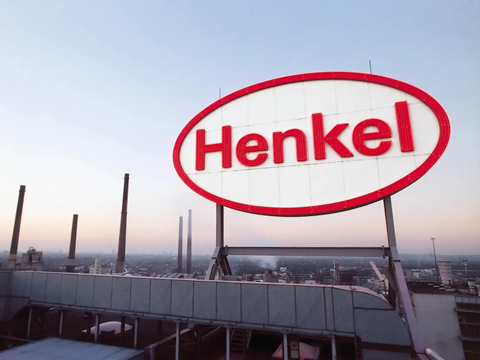
Dow, Henkel Adhesive Technologies, and Kraton Corporation have apparently reduced the carbon footprint of two of Henkel’s hot melt adhesive formulas for end-of-line packaging.
Compared to the legacy products, the TECHNOMELT SUPRA 100 LE and TECHNOMELT SUPRA 106M LE formulas, designed with biobased alternatives, are said to reduce adhesives’ cradle-to-gate carbon footprint by 25%. In part, this is attributed to Kraton’s REvolution rosin ester technology.
REvolution is a technology platform intended to enhance colour performance and oxidative stability in biobased tackifiers – in this case, Kraton’s SYLVALITE 2200. Claiming to be a sustainable alternative to fossil-based products, it is set to enable formulators to increase their biobased content and lower their carbon footprint.
This has been combined with Dow’s AFFINITY GA polyolefin elastomers, which seek to improve packaging performance in extreme temperatures.
Apparently, the lower-emission TECHNOMELT formulations still provide the same performance and food-safe properties as the legacy designs. The portfolio includes other biobased formulations and low-temperature hot-melt adhesive formulations.
TECHNOMELT SUPRA 100 LE and TECHNOMELT SUPRA 106M LE are also set to come at no additional cost to existing customers. This is attributed to Henkel, Kraton, and Dow investing in lower carbon emission formulations in a bid to increase the solutions’ accessibility and meet consumer demand for sustainability-minded packaging.
“At Kraton, we understand the importance of sustainability in today’s adhesive and packaging markets,” said Minco van Breevoort, Kraton Pine Chemicals President. “Supplying Henkel with our REvolution technology and biobased tackifiers reflects our long-standing dedication to innovating solutions that satisfy customer needs and reduce environmental impact. We take pride in driving the transition towards sustainable adhesive and packaging solutions.”
“Henkel has been leading the efforts on sustainable solutions which promote emission reduction, circularity and safety,” Henkel’s head of sustainability for Adhesive Technologies, Ulla Hüppe, continued. “Sustainability is not just our responsibility to future generations but integral to our long-term success as a company. By working with Kraton and Dow, we are able to offer lower emission solutions and establish new industry precedence.”
Haley Lowry, global director of Sustainability at Dow, added: “We believe in the power of collaboration with like-minded companies who share Dow’s values and ambition. With Henkel and Kraton, we’re not just forging collaborations, we’re creating a sustainable ecosystem. We’re proud to be setting a precedent of working together with other industry leaders to drive change and bring value to customers.”
Back in 2022, Henkel’s TECHNOMELT Supra ECO, a ‘carbon-negative’ hot melt adhesive, was nominated for a Sustainability Award under the Climate category. This solution claimed to enable at least 372 tons of CO2 savings every year – said to equal the carbon offset of more than 6,100 tree seedlings grown over a decade.
Since then, H.B. Fuller has attended LabelExpo Europe to display a range of pressure-sensitive adhesives that, in its view, could help customers reduce their carbon emissions. These included Swiftmelt Earthic 9010E, a ‘near-zero-CO2’ hot melt PSA, and the water-based Swifttak PS 8405.
If you liked this story, you might also enjoy:
The Brief: How viable is biorecycling for plastics?
Report: How the top brands are progressing on packaging sustainability
The Brief: Using ocean-bound plastic in packaging – how, why and should we?














No comments yet